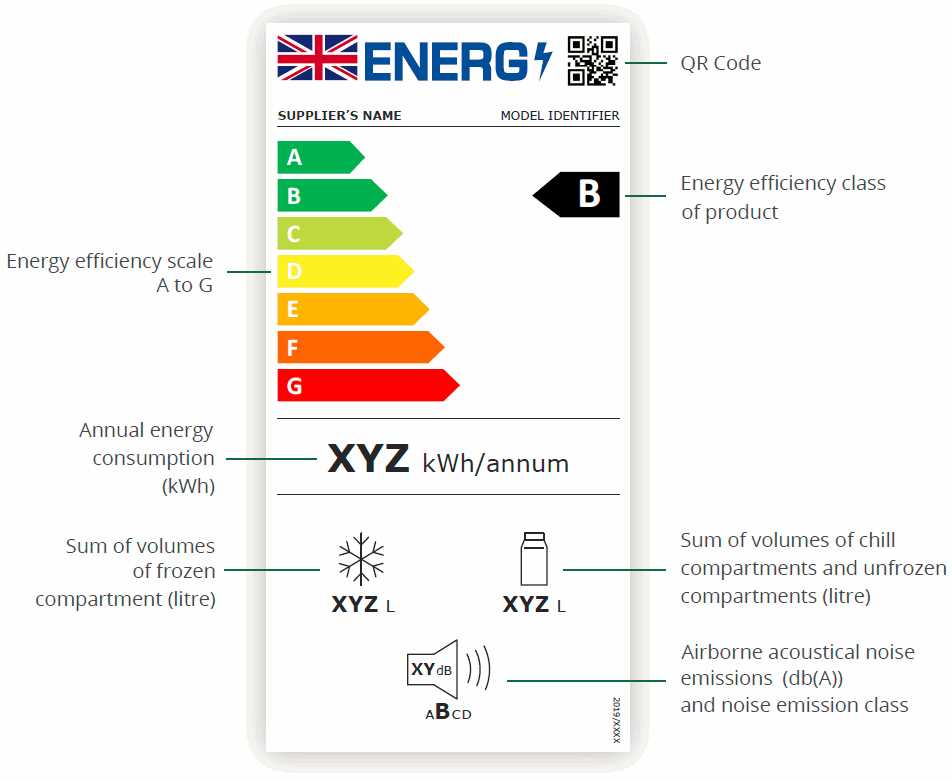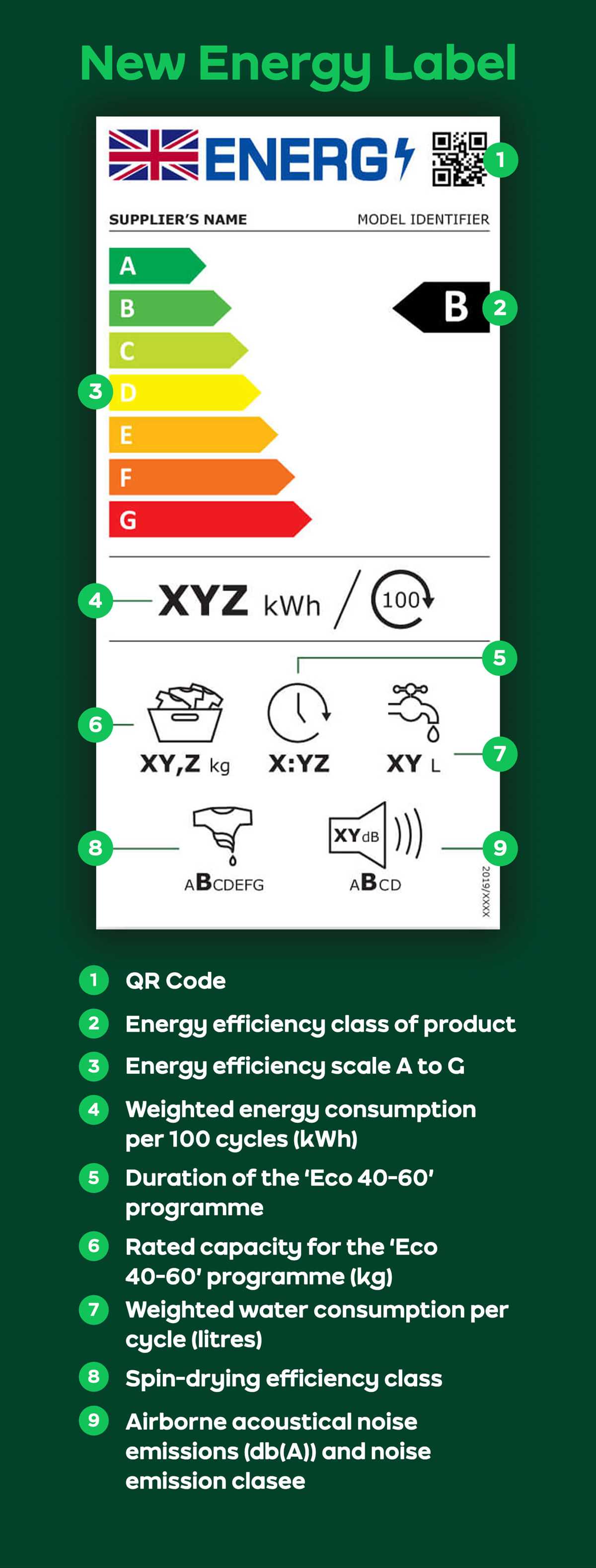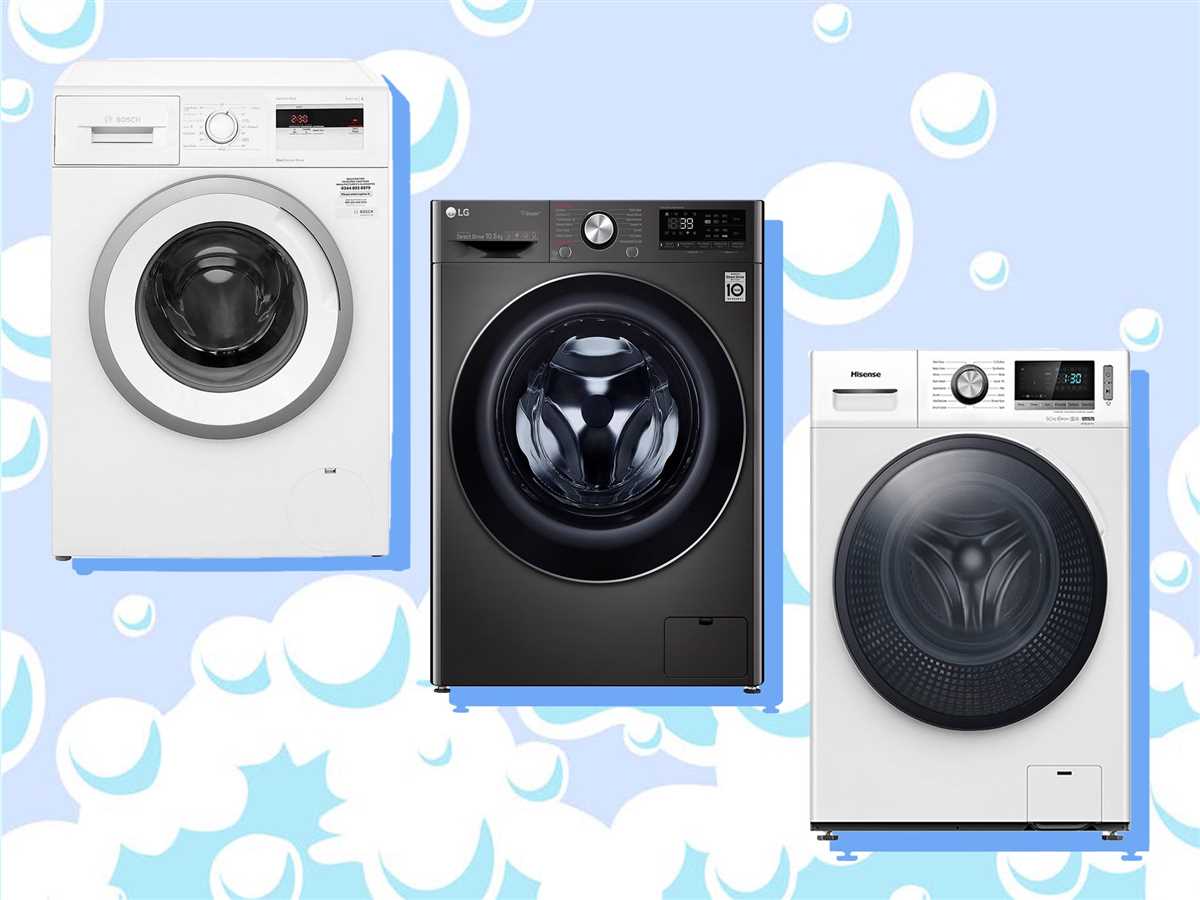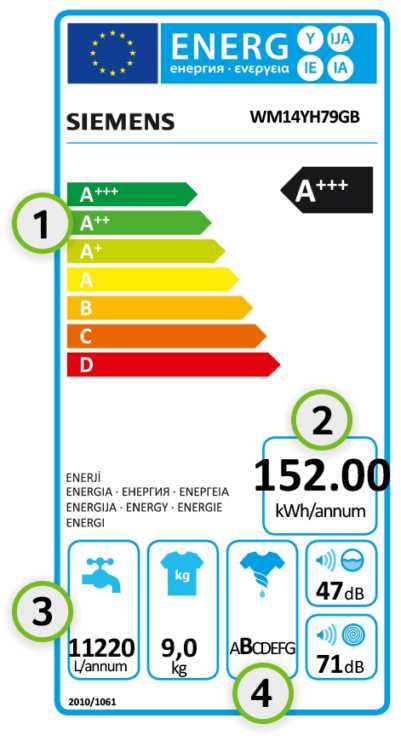




When it comes to choosing a new washing machine, one important factor to consider is its energy rating. But what do those letter ratings, such as A and B, really mean? Understanding the distinction between these energy ratings is crucial in making an informed decision about which appliance to purchase.
The energy rating of a washing machine refers to its energy efficiency, or how efficiently it uses electricity to perform its functions. The rating is based on a scale from A to G, with A being the most efficient and G being the least efficient. A washing machine with an A rating uses less electricity than one with a B rating, resulting in lower energy consumption and potentially saving you money on your monthly energy bills.
It’s important to note that the energy rating of a washing machine is not just a simple measure of how much electricity it uses. It also takes into account other factors such as water consumption, cleaning performance, and spin efficiency. This means that a washing machine with a higher energy rating may not only be more energy-efficient, but it could also clean your clothes better and have faster spin cycles.
When shopping for a new washing machine, it’s a good idea to look for models with high energy ratings, such as A or B. While they may have a higher upfront cost, these machines can save you money in the long run through reduced energy consumption. Additionally, choosing an energy-efficient appliance is an environmentally friendly choice, as it helps to reduce greenhouse gas emissions and conserve energy resources.
What are Energy Ratings?
Energy ratings are a measure of how energy-efficient an appliance is. In the case of washing machines, energy ratings can help consumers choose a machine that will both save them money and reduce their impact on the environment.
Energy ratings for washing machines are typically represented by a letter, ranging from A to G, with A being the most energy-efficient and G being the least. Some countries use a seven-point scale, while others use a ten-point scale.
The energy rating of a washing machine is determined by various factors, including the amount of energy it uses during a typical wash cycle, the water consumption, and the spin efficiency.
When looking at energy ratings, it’s important to consider the overall energy consumption of the washing machine, as well as its water consumption. A machine with a high energy rating may still consume a significant amount of water, which should be taken into account when evaluating its overall efficiency.
By choosing a washing machine with a high energy rating, consumers can not only save money on their energy bills but also contribute to reducing carbon emissions and protecting the environment.
Understanding A Energy Ratings
When it comes to energy ratings on washing machines, the A rating is the highest and most energy-efficient option. Understanding what this rating entails can help consumers make informed decisions when purchasing a new washing machine.
What is an A Energy Rating?
An A energy rating is given to appliances that are highly energy-efficient. In the context of washing machines, an A rating means that the machine uses less energy to run a wash cycle compared to machines with lower ratings. This can result in significant energy savings over time and lower electricity bills for the consumer.
Advantages of A Energy Ratings

Choosing a washing machine with an A energy rating offers several benefits:
- Energy Savings: A-rated washing machines consume less energy, resulting in lower electricity bills and reduced environmental impact.
- Environmental Benefits: The reduced energy consumption of A-rated machines helps to decrease carbon emissions and contribute to a greener future.
- Long-term Cost Savings: While A-rated washing machines may have a higher upfront cost, the energy savings over time can offset this initial investment.
- Improved Performance: A-rated machines often come with advanced features and technologies that enhance washing performance, such as faster spin cycles and more efficient water usage.
Considerations before Purchasing

While A-rated washing machines are generally a great choice, there are a few considerations to keep in mind:
- Price Range: A-rated machines may have a higher price tag compared to appliances with lower ratings. Consider your budget and whether the long-term energy savings make the investment worthwhile.
- Usage Frequency: If you have a large household and frequently use the washing machine, the energy savings from an A-rated machine can be more significant compared to a household with less frequent usage.
- Additional Features: Some A-rated machines come with extra features that may be important to you, such as specific wash programs, adjustable spin speeds, or noise reduction capabilities. Consider your preferences and needs when choosing a machine.
Conclusion

Opting for a washing machine with an A energy rating is a smart choice for both the environment and your pocket. These machines offer energy savings, environmental benefits, and improved performance. However, it’s essential to consider factors such as price range, household usage, and additional features before making a purchase.
Understanding B Energy Ratings

When it comes to understanding the energy efficiency of washing machines, the B energy rating is an important factor to consider. This rating is given to washing machines that fall in the middle range of energy efficiency. Here are some key points to help you understand what a B energy rating means:
1. Energy Consumption
A B energy-rated washing machine consumes more energy compared to an A-rated machine but less energy than a C-rated machine. It is considered to have moderate energy efficiency, making it a good choice for those who want a balance between energy consumption and performance.
2. Cost
Choosing a B energy-rated washing machine can help you save on initial purchase costs compared to higher-rated machines. However, keep in mind that the slightly higher energy consumption may result in slightly higher utility bills in the long run.
3. Environmental Impact
While a B energy-rated washing machine is not the most energy-efficient option available, it still contributes to reducing your carbon footprint compared to lower-rated machines. By choosing a B-rated machine, you are making a positive impact on the environment by consuming less energy.
It’s important to note that the energy rating is just one factor to consider when purchasing a washing machine. Other factors include capacity, features, and noise levels. It’s recommended to compare different models and consider your specific needs and preferences before making a final decision.
Benefits of A Energy Ratings
An A energy rating on a washing machine comes with several benefits:
- Energy efficiency: A-rated washing machines are designed to be highly energy efficient. They use less electricity to operate, which helps reduce your energy consumption and lower your electricity bills.
- Environmental friendliness: By using less energy, A-rated washing machines have a lower carbon footprint. They help reduce greenhouse gas emissions and contribute to a more sustainable environment.
- Cost savings: Choosing an A-rated washing machine can lead to significant cost savings over time. Since these machines use less energy, you’ll notice a reduction in your monthly electricity bills, saving you money in the long run.
- Long-term investment: A-rated washing machines are typically built with high-quality components and advanced technologies. This means they are not only better for the environment, but also durable and long-lasting. Investing in an A-rated machine ensures that you’ll have a reliable appliance that will serve you well for years to come.
- Improved performance: Despite using less energy, A-rated washing machines offer excellent performance. They clean and rinse clothes effectively, ensuring that your laundry comes out fresh and clean every time.
Overall, choosing a washing machine with an A energy rating brings numerous benefits, including energy efficiency, cost savings, environmental friendliness, long-term investment, and superior performance.
FAQ
What is the difference between A and B energy ratings on washing machines?
The energy rating on washing machines indicates how energy-efficient the appliance is. A-rated washing machines are more energy-efficient than B-rated machines. A-rated machines consume less electricity and water, leading to lower energy bills.
Do A-rated washing machines cost more than B-rated machines?
Generally, A-rated washing machines can be more expensive upfront compared to B-rated machines. However, the energy savings from using an A-rated machine can help offset the higher initial cost over time.
Can I save a significant amount of money by choosing an A-rated washing machine over a B-rated one?
Yes, choosing an A-rated washing machine can lead to noticeable savings on your energy bills. The reduced energy and water consumption of an A-rated machine can result in long-term cost savings.
Which energy rating should I choose if I want to be environmentally-conscious?
If you want to be environmentally-conscious, it is recommended to choose an A-rated washing machine. A-rated machines are more energy-efficient, which helps reduce your carbon footprint and overall impact on the environment.
Are there any other factors I should consider besides energy rating when choosing a washing machine?
Yes, besides energy rating, you should also consider the capacity, features, and brand reputation of the washing machine. It’s important to choose a machine that suits your needs and is from a reliable manufacturer.
Does the energy rating of a washing machine really make a difference?
Yes, the energy rating of a washing machine can make a significant difference. A higher energy rating means that the machine is more energy efficient and will use less electricity, saving you money on your energy bills. It also means that the machine is more environmentally friendly as it will produce less carbon emissions.












